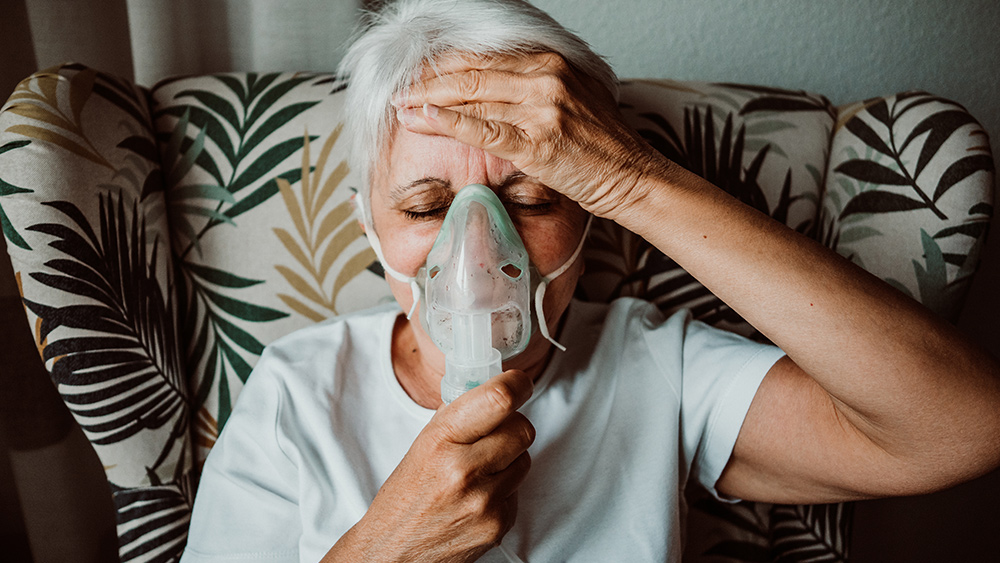Canada is pro-death: The “world leader in euthanasia” is now considering medically-assisted suicide of children WITHOUT parental consent
11/01/2022 / By Lance D Johnson

In 2021, Canada became the “world leader in euthanasia” – medically-assisting more than 10,000 people to an early death. Since 2016, Canadian medical authorities followed through with 31,000 euthanasia requests. Hospitals there have quickly become death camps, a macabre place where treatment and counseling is withheld, where hopelessness and suicide is encouraged.
As the depravity spreads, the Canadian Parliament is now considering a law that would allow medical authorities to assist minors into a medically-assisted suicide, without parental consent. If this sounds outlandish, here’s how far Canada has gone in just a few short years…
The depraved expansion of medically-assisted suicide in Canada, UK
Euthanasia was once a criminal act when carried out on adults. In 2015, the Canadian Supreme Court overturned these criminal prohibitions for assisted-suicide in Carter v. Canada. After this infamous ruling, the Canadian Parliament went on to legalize “medical aid in dying” for adults under Bill C-14. This law, passed in 2016, authorized medical authorities to terminate a person’s life if their condition was determined to include “enduring and intolerable suffering” or a “reasonably foreseeable death.”
By 2021, the Canadian Parliament passed a more cavalier euthanasia law (Bill C-7), allowing people with mental illnesses to kill themselves under medical supervision, as long as they also suffered from a non-mental illness related condition. This paved the way for a 23-year-old, Kiano Vafaeian to seek euthanasia without his family’s knowledge. He was chronically depressed and he was also diabetic, with lost vision in one eye. When his sister and mother grew worried about his mental health and logged into his account, they found out that their brother/son had applied and was approved for “medical assistance in dying.” A doctor was scheduled to assist Kiano in carrying out his death wish at just 23-years-old. The family pushed back hard. The doctor – Dr. Joshua Tepper – received backlash and ultimately backed out of the operation. That young man’s life was saved, yet so many other young people are now considering euthanasia and are being hopelessly herded into the death camps.

Euthanasia is now expanding to minors
In 2018, a U.K. medical journal promoted the so-called “ethics” of child euthanasia without parental consent. In 2017, British authorities assumed ownership over an infant named Charlie Gard, a healthy infant who was born with a rare and severe genetic disorder. Even though the parents raised money for an experimental treatment overseas, and a doctor was willing to help, the British authorities essentially abducted little Charlie from his parents and held the infant against the parent’s will. The British authorities sought to terminate the boy’s life, claiming little Charlie should “die with dignity.” The European courts ruled that Charlie should be removed from life support, and denied treatment. He died at 11 months.
This case has influenced a Canadian parliamentary committee to decide whether to pass a new law than enables Canadian authorities to abduct children and kill them “ethically” without any input from the parents.
In the C-7 law, lawmakers created a provision that opens the door for minors to be euthanized. C-7 calls for a “comprehensive review of the provisions of the Criminal Code relating to medical assistance in dying and their application, including but not limited to issues relating to MATURE MINORS….” According to Canada’s Department of Justice, “parents are generally ‘entitled to make treatment decisions on their children’s behalf.”
“The mature minor doctrine, however, allows children deemed sufficiently mature to make their own treatment decisions.” Right now, Canada is seeking to expand euthanasia to include “mature minors” while stopping any family member from intervening, while revoking parental rights.
For the latest on this issue, check out Euthanasia.News.
Sources include:
Submit a correction >>
Tagged Under:
Canada, children's health, Counseling, death camps, depopulation, euthanasia, evil, failing medical care, hopelessness, hospital homicide, medical violence, medically-assisted suicide, parental consent, Parental rights, parents rights, protect children, Twisted, withheld treatments
This article may contain statements that reflect the opinion of the author



















